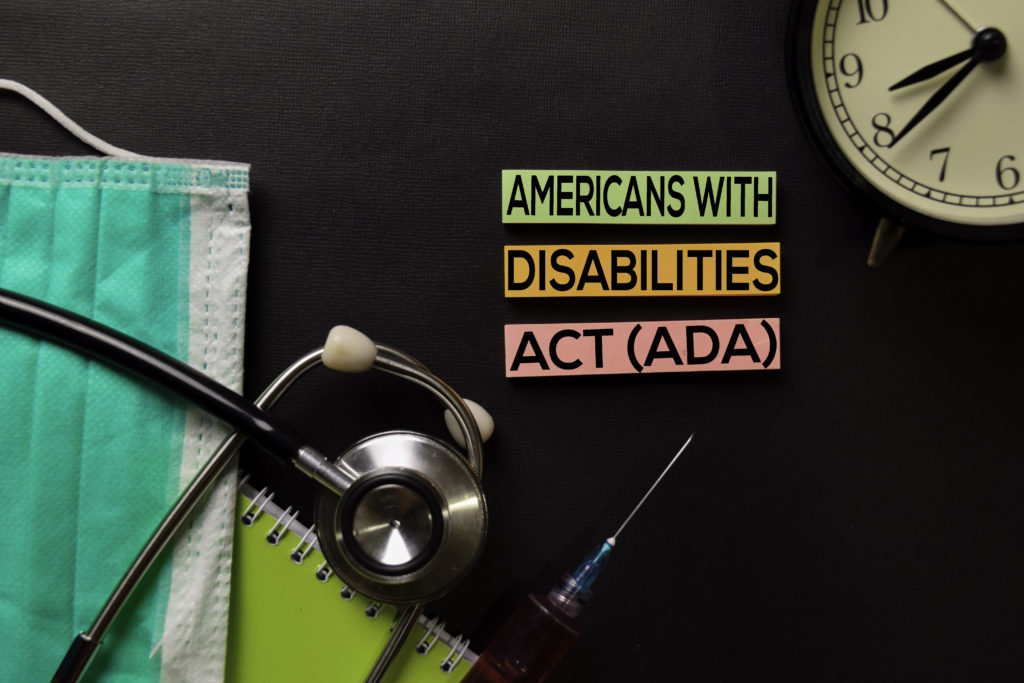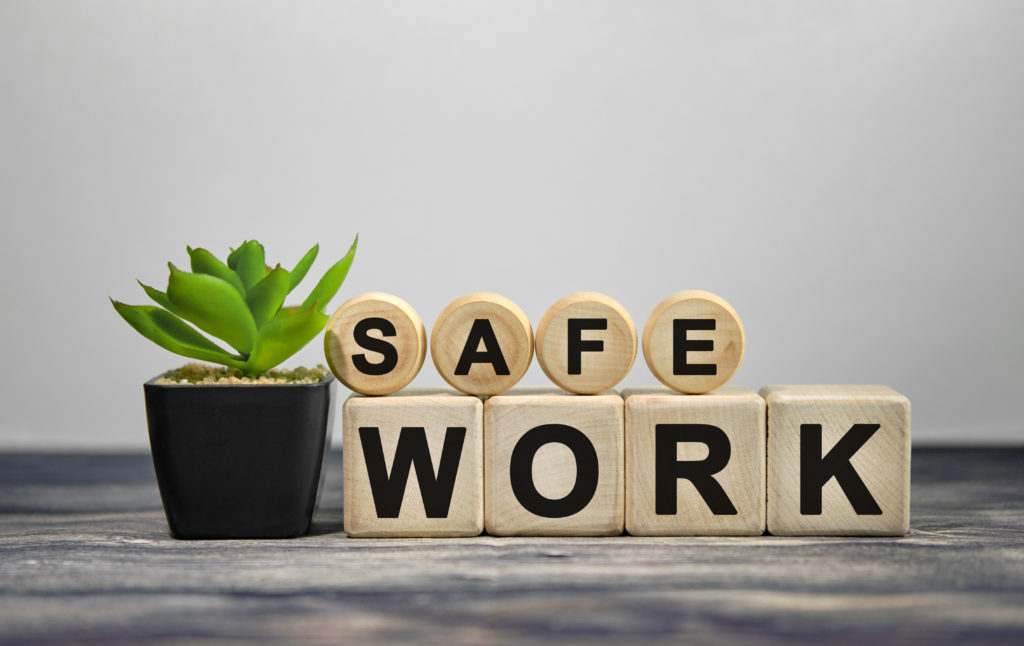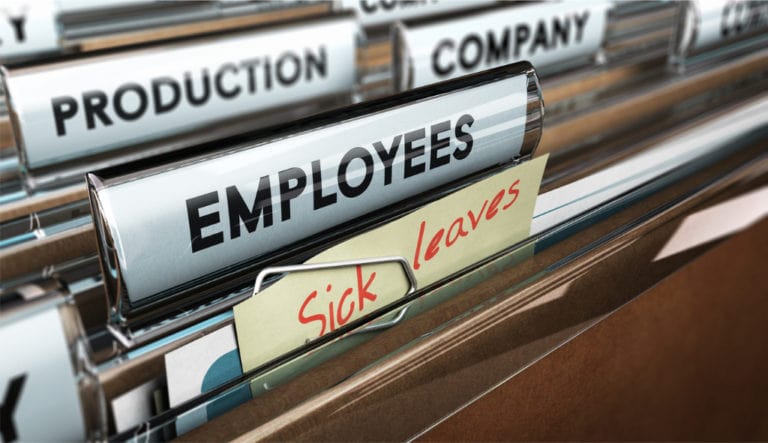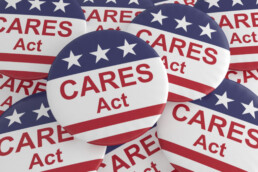Federal Government Clarifies CARES Act Eligibility

As the country continues to struggle with the challenges due to COVID-19, labor laws have been adapting to the pandemic, and employees must be aware of their rights. One area that has been significantly impacted by COVID-19 is the laws regarding unemployment benefits. The federal and state laws that govern unemployment benefits have always been complicated, and are especially difficult to understand now with the Coronavirus Aid, Relief, and Economic Security Act (CARES) that was enacted in March 2020. CARES expanded weekly unemployment benefits by as much as $600 a week to eligible workers and have proven to be vital to many families during the pandemic. While there have been a myriad of issues and concerns regarding CARES, there is no denying that to many unemployed workers relied on the additional funds as the nation’s unemployment rate sky-rocketed. Moreover, many states were overwhelmed with the volume of applications, and benefits were delayed.
While it is uncertain whether the CARES Act will be extended, the federal government provided some clarification on July 22, 2020. For example, a worker may refuse to accept a job offer because the job is unsafe and continue to collect the additional financial benefits provided under CARES. The states, however, will determine what is considered to be safe work conditions, and if a state determines the job or work conditions are not “suitable,” then the worker may receive the expanded unemployment benefits under CARES. Most states already had suitable work place provisions in place prior to COVID-19, and the general criteria is whether the work unreasonably exposes the worker to unsuitable safety risks. Labor laws have always guaranteed a safe work environment, which is particularly important during a pandemic. Notably, a worker cannot refuse a job offer and seek expanded unemployment benefits due to a general fear of COVID-19.
According to the U.S. Department of Labor, the state may also determine that a job is unsuitable if a worker refuses the job due to virus-related reasons such as increased risk of COVID-19 due to an underlying medical condition. The state may also determine a job is unsuitable if a worker claims “good cause,” although the federal government has not specifically defined what is considered to be “good cause” which means that states must decide that issue. Fortunately, workers in California benefit from some of the country’s strongest state labor law protections, and this is one example of how an experienced labor law attorney will be able to argue your case by understanding state laws to protect your rights when federal law is not clear.
The federal government also clarified that some out-of-work employees are not eligible for CARES benefits depending on what caused the loss of the job. For example, if a worker is unemployed due to a reason not related to COVID-19, that worker is not eligible for expanded benefits even if jobs are not available due to COVID-19 related circumstances. The reason for this is because CARES was enacted to assist workers who faced unemployment specifically due to the pandemic, and is not broad enough to include workers who did not lose their jobs due to reasons unrelated to COVID-19. Fortunately, those workers may still be eligible for regular unemployment benefits.
Prior to COVID-19, workers who quit their jobs without “good cause” were generally not eligible for unemployment benefits. However, under the CARES Act, certain reasons related to COVID-19 would allow a worker to qualify for expanded unemployment benefits under CARES. For example, a worker who quits a job because of mandatory quarantine, or the need to provide care to a family member with COVID-19 could be considered “good cause” for the purposes of CARES benefits.
While the federal government continues to debate whether to extend benefits under the CARES Act or perhaps craft new legislation, the states may decide to adopt new policies regarding eligibility in the meantime. However, since unemployment benefits are a hybrid of federal and state law, the states must adhere to federal law and provide at least the minimum benefits afforded under federal laws. Also, as more states work towards re-opening and more businesses are hiring, states may become stricter in determining eligibility for unemployment benefits. As we have learned, during a pandemic, it is important to be informed and be ready to take full advantage of any benefits you are eligible for. Plan ahead and consult an experienced labor law attorney so you will have an advocate that will not only understand the quickly changing laws and benefits, but will be able to guide you and protect your rights during these uncertain times.
FREE CONSULTATION
Srourian Law Firm, with locations in Los Angeles, Westwood, Woodland Hills, and Orange County is experienced in all aspects of employment law including unemployment benefits and have aggressively represented employees in Los Angeles, Hollywood, Santa Monica, Orange, Irvine, Anaheim, Santa Ana, Newport Beach, Costa Mesa, Fullerton, Tustin, Mission Viejo, San Clemente, Garden Grove, Laguna Niguel, Brea, Fountain Valley, Aliso Viejo, Yorba Linda, Westminster, Laguna Hills, Cypress, and La Habra.
If you or someone you know suffered employment violations involving unemployment benefits, you may have certain employee rights under state and federal law, and may be entitled to compensation as a part of the class action lawsuit. Please contact us to speak with one of our lawyers for a free consultation.
Reasonable Accommodations Required During COVID-19

As the country continues to combat COVID-19, employees must be aware of their rights and ensure that their employees comply with all federal, state and local labor laws including the American with Disabilities Act (ADA). Under the ADA, federal law requires employees provide reasonable accommodations for disabilities covered under the act. However, according to the U.S. Equal Employment Opportunity Commission (EEOC), the most common complaint being filed by employees during the pandemic is employers failing to accommodate their disabilities.
The ADA has specific provisions regarding accommodations that employers must provide to employees with disabilities regardless of the extenuating circumstances due to COVID-19. Generally, the ADA requires employees to modify an employee’s job or work environment in order to ensure an employee with a disability is able perform the essential functions of their job. According to the law, the employer must make all “reasonable accommodations” as long as there is no “undue hardship.” As with many statutes, the legal definitions may not be obvious, so you should consult an experienced employment law attorney to explain the law and your rights.
The protections under the California state equivalent to the ADA are found in the California Fair Employment and Housing Act (FEHA). The FEHA protects employees with a physical or mental disability and requires employers provide reasonable accommodations such as changing work schedules, relocating the work area, modifying job duties and providing leave for medical care.
With the additional health and safety concerns due to COVID-19, all employees, particularly employees with disabilities must ensure their rights are not being violated. For example, some employees may have an underlying condition that creates a greater risk for COVID-19. Under both federal and state labor laws, the employee is entitled to reasonable accommodations to ensure their safety in the workplace if the risk is directly related to the disability.
The added health risks due to COVID-19 have impacted many aspects of labor law and the workplace, particularly if an employee has an existing qualified disability under the ADA or FEHA. Federal and state labor laws offer a wide range of protection besides accommodations. For example, all medical information of employees, related to a disability or COVID-19, must be confidential. Moreover, the ADA and FEHA provides protections to prospective employees and require hiring policies that provide equal opportunities to applicants regardless of any disability. Again, the employer must provide a reasonable accommodation to an applicant as long as it would not create an undue hardship.
If you believe your employee is violating your rights as an employee under the ADA or FEHA, you should consult an experienced employment law attorney to discuss your case and options.
FREE CONSULTATION
Srourian Law Firm, with locations in Los Angeles, Westwood, Woodland Hills, and Orange County is experienced in all aspects of employment law including ADA and FEHA violations and have aggressively represented employees in Los Angeles, Hollywood, Santa Monica, Orange, Irvine, Anaheim, Santa Ana, Newport Beach, Costa Mesa, Fullerton, Tustin, Mission Viejo, San Clemente, Garden Grove, Laguna Niguel, Brea, Fountain Valley, Aliso Viejo, Yorba Linda, Westminster, Laguna Hills, Cypress, and La Habra.
If you or someone you know suffered employment violations as an employee including ADA or FEHA violations, you may have certain employee rights under state and federal law, and may be entitled to compensation as a part of the class action lawsuit. Please contact us to speak with one of our lawyers for a free consultation.
OSHA Issues COVID-19 Workplace Safety Guidelines
Employees must know their rights as businesses around the world continue to adapt to the challenges due to the CoVid-19 pandemic. As social distancing and other safety precautions are put in place, businesses must comply with local, state and federal requirements for maintaining a safe work environment and ensure the good health and safety of employees. Most laws enacted in response to CoVid-19 vary depending on whether a business is considered essential or non-essential. For example, non-essential businesses may not compel non-essential employees to report to work, and it is illegal to retaliate against any non-essential employee who refuses to go to work. Essential workers, however, also have protections that require employers to ensure and maintain a safe workplace.
In March 2020, the Occupational Safety and Health Administration (OSHA) issued new guidelines as a result of the pandemic to clarify existing federal law that protects employees. The guidelines address the additional health risks posed by CoVid-19. Under the “General Duties Clause” enacted in 1970, OSHA (as part of the Labor Code), requires employers ensure the workplace is free from “recognized hazards” that are likely to result in serious injury or death of employees.
29 U.S. Code § 654 (5)(a)(1): shall furnish to each of his employees employment and a place of employment which are free from recognized hazards that are causing or are likely to cause death or serious physical harm to his employees.
The new OSHA guidelines, for the most part, provide guidance that follows the advice of public health officials that are already recommended for everyone such as washing hands frequently and maintaining social distancing. While the guidelines are not legally binding, they do outline recommended precautions that employers should take in order to ensure the safety of employees.
The new guidelines address four categories, or controls, for businesses to ensure employee safety: (1) engineering, (2) administrative, (3) safe work practices, and (4) personal protective equipment. The first category, engineering, identifies safety measures to separate employees with physical barriers. Administrative controls include ensuring sick employees stay home, and creating enough space for employees to stay six feet apart. Under safe work practices, OSHA recommends that company policies and practices promote good health such as providing hand sanitizer, sufficient time to wash hands frequently, and having disinfecting products available. Finally, personal protection equipment includes providing masks, gloves and eye protection to reduce the risk of exposure to CoVid-19, and would depend on the type of work and level or risk.
Additional federal, state and local laws may provide additional protection to employees. For example, in Los Angeles County, local law requires social distancing in public as well as wearing non-surgical masks by employees of essential business as well as customers. Businesses that fail to provide employees with personal protective equipment or ensure customers are wearing masks are violating the law.

FREE CONSULTATION
Srourian Law Firm, with locations in Los Angeles, Westwood, Woodland Hills, and Orange County is experienced in all aspects of employment law including OSHA violations and have aggressively represented employees in Los Angeles, Hollywood, Santa Monica, Orange, Irvine, Anaheim, Santa Ana, Newport Beach, Costa Mesa, Fullerton, Tustin, Mission Viejo, San Clemente, Garden Grove, Laguna Niguel, Brea, Fountain Valley, Aliso Viejo, Yorba Linda, Westminster, Laguna Hills, Cypress, and La Habra.
If you or someone you know suffered employment violations as an employee including OSHA violations, you may have certain employee rights under state and federal law. Employees may be entitled to damages as a part of the class action lawsuit. Please contact us to speak with one of our lawyers for a free consultation.
Employees Have a Right to be Safe at Work Amid COVID-19 Pandemic

The challenges we are all facing due to COVID-19 have resulted in many changes at home and in the workplace. While everyone must adapt to the rules of social distancing and the mandatory Safer-at-Home restrictions, essential businesses must also ensure their employees are safe at work during this pandemic. Employees of essential businesses continue to provide vital services despite the health risks, and will keep America operating. These front-line workers are important and have rights under California law to ensure their safety, health and well-being.
Under California law, employers must provide “reasonably adequate” safety devices and safeguards to keep the work place “safe and healthful.” Moreover, California Labor Code section 6401 requires “every employer shall do every other thing reasonably necessary to protect the life, safety, and health of employees.” If your employer does not protect your health and safety, they are violating the law. While this is especially challenging during the current pandemic, employees have the right to be safe in the workplace.
EMPLOYERS MUST PROVIDE MASKS, GLOVES, SOAP AND SANITIZER
Even though the current COVID-19 pandemic is unprecedented, given our understanding of the virus and how it is spread, essential workers that have contact with the public must be provided with masks, gloves, soap and sanitizing products. In addition, employees must be given time to properly wash their hands frequently, as recommended by health care organizations. Employers must also ensure that the workplace is clean and regularly sanitized for the protection of employees and customers.
According to the Centers for Disease Control and Protection (CDC) and most health care organizations, properly washing your hands with soap and water is the most effective way to prevent the spread of COVID-19 as well as other disease.
The need for safeguards in the workplace is particularly important for health care providers and first responders who are more vulnerable simply because they are more likely to be in direct contact with contagious members of the public. Every effort must be made to provide sufficient personal protective equipment (PPE) to every front-line worker to ensure their health and safety, and avoid further contagion.
State law also requires employers to reimburse employees for any expenses spent by employees to obtain necessary safety equipment. This also includes the cost of lodging if an employee is required to self-isolate because they live with someone who is considered vulnerable to the virus or has been diagnosed with the virus.
EMPLOYERS SHOULD ACCOMMODATE VULNERABLE EMPLOYEES
Employees who are considered vulnerable to the virus by having a pre-existing medical condition, may request an accommodation to work from home. If the accommodation is reasonable, the employer must accommodate the request or may violate protections granted under California’s Fair Employment & Housing Act (FEHA). Since California is under a state of emergency due to the virus, employees should know what changes have been made to provide workers with protection during the pandemic.
For example, while employers may ask employees whether they are experiencing COVID-19 symptoms, this information is confidential and the employee’s medical condition remains private. Similarly, if a co-worker has tested positive for the virus, or is believed to have the virus, the employer must follow the guidelines established by the local public health department as well as any current state or federal health recommendations. That may include closing the work place, deep cleaning and allowing employees to work remotely. Most importantly, employers cannot reveal the name of the employees that have tested positive or are suspected of having the virus.
FREE CONSULTATION
Srourian Law Firm, with locations in Los Angeles, Westwood, Woodland Hills, and Orange County is experienced in all aspects of employment law including failure to ensure a safe and healthful workplace and have aggressively represented employees in Los Angeles, Hollywood, Santa Monica, Orange, Irvine, Anaheim, Santa Ana, Newport Beach, Costa Mesa, Fullerton, Tustin, Mission Viejo, San Clemente, Garden Grove, Laguna Niguel, Brea, Fountain Valley, Aliso Viejo, Yorba Linda, Westminster, Laguna Hills, Cypress, and La Habra.
If you or someone you know suffered employment violations as an employee such as failure to ensure a safe and healthful workplace in California, you may have certain employee rights under state and federal law and may be entitled to unpaid wages, interest, attorneys’ fees and costs, and/or be entitled to compensation as a part of the class action lawsuit. Please contact us to speak with one of our experienced lawyers for a free consultation.
Emergency Supplemental Paid Sick Leave Law to Assist Workers Affected by COVID-19

On April 7, 2020, Mayor Eric Garcetti signed an emergency order to modify the paid sick leave policy enacted by the Los Angeles City Council in March. Supplemental paid sick leave provides vital financial aid to employees unable to work due to COVID-19. Specifically, companies based in L.A. with at least 500 employees locally or 2,000 nationally must provide additional paid sick leave up to 80 hours to a broad range of employees. Smaller businesses must also provide paid sick leave benefits as well. While Mayor Garcetti’s order expands the businesses that are exempt from the law passed by the city council, the law also ensures that many employees are still protected and entitled to supplemental paid sick leave during the unprecedented worldwide pandemic.
What are the eligibility requirements?
To be eligible, employees must have been an employee working in Los Angeles between February 3, 2020 and March 4, 2020. Under the law, supplemental paid sick leave must be provided if the employee:
- is unable to work due to required or recommended self-quarantine;
- is at least 65 years old with an underlying medical condition;
- must provide care to a relative that is under quarantine; or
- must provide care for an elderly family member or a child.
What businesses are exempt?
State and federal lawmakers are taking action to protect workers’ jobs and ensure employees receive adequate financial support while at the same time, lawmakers must not place too much burden on businesses. As a result, Mayor Garcetti hopes the emergency order strikes the “necessary balance of these interests.” As a result, there are exemptions for businesses such as health and emergency care providers, global delivery services, new businesses, and government agencies serving the public health. The most significant modification to the city council’s policy was the additional eligibility requirement by Mayor Garcetti that workers be based in L.A
What do the benefits consist of?
The actual paid sick leave benefits under the law largely depend on the size of the employer. For example, full-time employees based in L.A. working for an employer with over 500 local employees (or 2,000 nationally) must provide 80 days of paid sick leave. Businesses with 100 employees or more, but under 500 employees, must provide 14 supplemental paid sick leave days if the employee is affected by COVID-19.
Smaller businesses with less than 100 employees, but more than ten must provide five days of paid sick leave and access to short-term disability benefits and paid family leave. Finally, small business with less than 10 employees and revenue less than $1 million are not required to provide supplemental paid sick leave and are exempt.
As Los Angeles, and the world, cope with COVID-19 and the disruption to the economy and businesses, important laws are being enacted to provide necessary protection to employees and businesses alike.
Employees in California already have the right to sick leave under the Healthy Workplace Families Act of 2014 and the Federal Medical Leave Act, but recent laws have been enacted to provide additional rights during the pandemic.
FREE CONSULTATION
Srourian Law Firm, with locations in Los Angeles, Westwood, Woodland Hills, and Orange County is experienced in all aspects of employment law including the right to paid sick leave and have aggressively represented employees in Los Angeles, Hollywood, Santa Monica, Orange, Irvine, Anaheim, Santa Ana, Newport Beach, Costa Mesa, Fullerton, Tustin, Mission Viejo, San Clemente, Garden Grove, Laguna Niguel, Brea, Fountain Valley, Aliso Viejo, Yorba Linda, Westminster, Laguna Hills, Cypress, and La Habra.
If you or someone you know suffered employment violations as an employee entitled to supplemental paid sick leave, you may have certain employee rights under state and federal law. workers may be entitled to paid sick leave; and may be entitled to compensation as a part of the class action lawsuit. Please contact us to speak with one of our lawyers for a free consultation.





